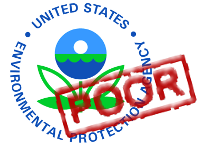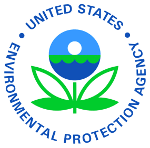President Obama’s appointment of Dr. Siddiqui to the post of the Chief Agricultural Negotiator at the U.S. Trade Representative’s Office, guarantees that the corporate agenda of biotech and pesticides industry will be promoted around the world, ensuring the continued global spread of GMOs and pesticides.
|
|
|||
|
The United States Department of Agriculture (“USDA”) and its Animal and Plant Health Inspection Service (“APHIS), which oversees biotechnology regulation, was heavily criticized by its own Inspector General 2005 audit report. Did APHIS change its way since then? There is little doubt that Monsanto-farmer contracts are fundamentally unfair to the farmers. In this case, David does not fair well against Goliath. But are such agreements also fundamentally unfair to society because, unless you grow it yourself, what the farmer grows is what you eat. As a result of policies enumerated by the Coordinated Framework, regulatory control over GMOs in the United States was divided among different regulatory agencies. The consequences of such a decision was a myopic, and at times, haphazard regulatory control by each agency over GMOs. For USDA, this raises significant questions as to the agency’s ability to effectively regulate second generation GMOs. How can the public trust government agencies to ensure the safety of GMOs if those agencies have a long track record of failure? USDA’s regulatory track record begs the question of whether it is a government “regulatory” agency or an industry group. Monsanto’s money buys the “truth” even on public radio so that it too spreads Monsanto’s PR message “Produce more, Conserve More.” In reality, agriculture a la Monsanto is everything but conservation or sustainability. Read our analysis of Monsanto’s treatment by Marketplace. Industry bias, lax scientific standards, exemption of food crops containing pesticides from registration requirements, and failure to independently monitor GM crops after approval, are among the regulatory problems exhibited by the EPA when it comes to regulating GMOs. The United States government consistently promotes its regulatory framework for genetically engineered organisms as comprehensive and strict. Is this a public relations maneuver, wishful thinking or the story of the emperor without clothes? The USDA provides a number of exemptions for articles that it has determined do not pose a plant pest risk. One of such exemptions authorizes the introduction of certain regulated articles without a permit provided that USDA is notified in advance. The United States Department of Agriculture (“USDA” or “Agency”) requires that anyone desiring to import, transport interstate, or plant a regulated article must apply for a permit or make a notification to the Agency’s Animal and Plant Health Inspection Service (“APHIS”) that an introduction will be made. Under the Plant Protection Act (“PPA”) USDA requires that anyone desiring to import, transport interstate, or plant a “regulated article” must apply for a permit or make a notification to APHIS that an introduction will be made. The United States Department of Agriculture shares significant regulatory authority over GM crops with FDA and EPA. Transgenic, or genetically modified, plants are regulated by USDA’s Animal and Plant Health Inspection Service (“APHIS”) under the Plant Protection Act (“PPA”). The FDA’s regulatory approach thus focuses on the end product, rather than the process used to create genetically modified foods. In short, the FDA regards GM products as “generally regarded as safe,” (“GRAS”) and does not subject GM food products to food additive review. The Food and Drug Administration is the lead regulatory agency of food articles. It is in charge of ensuring the safety and effectiveness of food (other than meat), food additives, medical devices, drugs, veterinary drugs, cosmetics and genetically engineered food. TSCA provides the EPA with authority to regulate chemical substances which may present an unreasonable risk of injury to health or the environment during manufacture, processing, distribution in commerce, use, or disposal. TSCA applies to uses of substances that are not specifically covered by another statute, i.e., TSCA does not apply to pesticides, food, drugs or cosmetics. TSCA is therefore a “catch-all” or “gap-filler” statute. In the case of herbicide-tolerant crops, EPA establishes tolerances for the allowable amount of herbicide residues that may remain on the crop. Environmental Protection Agency's Role Under The Federal Insecticide, Fungicide, and Rodenticide ActEPA uses its authority under FIFRA to regulate plant incorporated protectants, or substances produced to control pests, both, to ensure that the production of such a pesticide in plants is safe for the environment, and to establish allowable levels of the pesticide in the food supply. Any substance produced and used in a living plant, whether through conventional breeding or genetic modification is regulated by the EPA if it is intended to control pests. As such, the EPA has a role in regulating the several types of genetically modified organisms. Recently the Obama administration appointed Michael Taylor to serve as the senior advisor to the commissioner of the FDA for food safety. It is also rumored that Pennsylvania’s Agriculture Secretary, Dennis Wolff, would be selected for the position of the Under-Secretary of Agriculture for Food Safety. Consumer group advocates are ringing the alarm bells as both of these men are seen as being deeply rooted in the industry and there are serious concerns as to whether they will represent consumer’s interests in their positions (or, at a minimum, be objective and cautious). Presently, it is questionable whether the genetically engineered foods are adequately controlled and/or regulated under U.S. law. There is no single federal statute or federal agency that governs the subject matter. Three federal agencies are primarily responsible for the regulation of genetically engineered foods - the Food and Drug Administration (FDA), the Environmental Protection Agency (EPA), and the U.S. Department of Agriculture (USDA). |
|||
|
 |
|||








